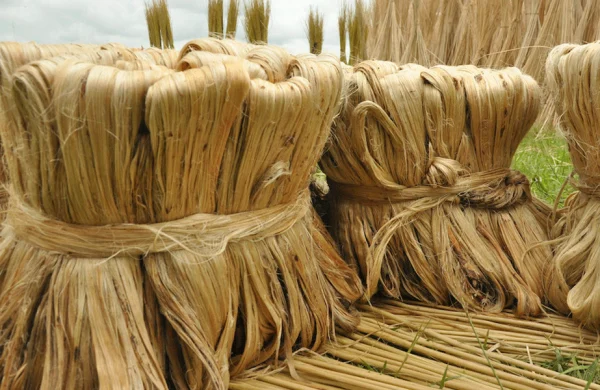Special initiatives to revive golden era of jute
- Update Time : Tuesday, December 31, 2024

TDS Desk
The interim government has launched special measures to restore the golden days of “golden fiber” (jute). As part of this initiative, Bangladesh Bank has provided special facilities to clear outstanding loans in the jute sector. Efforts are also underway to promote jute products as an alternative to polythene, with a gradual plan to eliminate the use of polythene for environmental protection.
However, industry experts emphasise the need for similar support for other sectors, such as the paper and cement industries, which have faced shutdowns. Without such interventions, sustaining the macroeconomic wheel could become increasingly challenging.
Due to increasing global demand for jute, Bangladesh earned a record $1.16 billion from exports of jute and jute products in the fiscal year 2020-21. This highlights the growing diversity in jute’s usage domestically and internationally, giving farmers hope for a brighter future. For example, approximately 50 types of jute fabrics are exported to cold-weather countries.
However, challenges such as the shutdown of hundreds of jute mills in recent years and the rising cost of raw materials due to the dollar’s price surge—from Tk80 to Tk122—have impacted the industry. Additionally, paper, cement, and steel industries are also experiencing downturns due to economic instability and reduced demand in the construction sector.
On 14 November, Bangladesh Bank issued a directive to restructure outstanding loans in the jute sector. Loans deemed irregular are to be transferred into a “block account,” with a 10-year repayment period. The directive also requires a minimum down payment of 1.5% and has extended the grace period from one year to two years. Commercial banks have been instructed to implement these measures, which are supported by earlier orders from the Ministry of Finance.
According to the Bangladesh Cement Manufacturers Association (BCMA), the cement industry is facing a significant downturn. Production stood at 40 million tons this year, against a demand of 31.1 million tons. Sales dropped by 2.5% compared to 2023, with notable declines in October. Between January and October 2024, only 27.27 million tons of cement were sold, a sharp decline from the 38.35 million tons sold during the same period in 2023.
The steel industry is facing similar challenges. The Bangladesh Steel Manufacturers Association (BSMA) reports that 20-30% of raw materials are sourced locally, with the remainder imported from countries such as Europe, Australia, and the Middle East. The ongoing surge in the dollar rate and instability in China’s market have further raised import costs. With nationwide construction projects nearly halted, sales have dropped significantly, making it difficult for many entrepreneurs to service their loans.
Industry leaders are urging the government to convert short-term loans into long-term loans and increase loan facilities by 50% to enhance companies’ purchasing power. They also recommend strategic government policy support to help stabilize the industries and revive their operations.
Reviving these ailing industries is seen as essential to maintaining economic stability and employment opportunities in the country.














